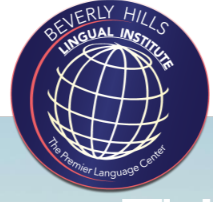The Japanese Program at the School of Modern Languages offers a minor in Japanese, as well as undergraduate and graduate degrees in Japanese. Our Japanese courses range from the elementary to advanced levels, including language-based content courses in literature, translation, technology.

The Japanese Program at the School of Modern Languages offers a minor in Japanese, as well as undergraduate and graduate degrees in Japanese.
Our Japanese courses range from the elementary to advanced levels, including language-based content courses in literature, translation, technology, and linguistics.
We also offer accelerated courses, a summer study abroad program, and online courses to accommodate student learning.
During the first five semesters (2.5 years) of Japanese, students develop four basic skills in Japanese: speaking, listening, reading and writing.
Students can accelerate this timeline by also taking online courses during the summer or taking accelerated classroom-based courses in the spring. After finishing JAPN 2002, students are eligible to participate in an intensive 8-week study abroad program in Japan.
If there are more applicants than we can accommodate in LBAT, those who completed JAPN 3001 will be preferred. After four years in this program, students should reach the Intermediate-Low/Mid proficiency level on the ACTFL scale.
In addition to the LBAT Summer program, Georgia Tech has exchange programs with several universities in Japan (See below). Students can also apply for 6-12 month international internships at Japanese corporations.
ALIS majors are required to study or intern abroad; IAML and GEML students are encouraged to do so (See below). These international experiences can also be used to count towards International Plan requirements.
The combination of language proficiency, intercultural competence, and international experiences in these programs provides students with a distinct advantage in employment opportunities and a stronger grounding in science and technology.
Who We Are and What We Believe In
Change the conversation cross-cultural expertise for global leadership.
Our Purpose
The School of Modern Languages is a national leader in the study of cultures, languages, linguistics, and media.
Our faculty are consistently recognized for their impactful and interdisciplinary research, artistic creation, innovations in curriculum development, expertise in study abroad, and close collaboration with industry professionals.
As scholars and educators, we are proud of our established strengths in equipping the next generation of global leaders with the essential knowledge, skills, and professional opportunities necessary to foster meaningful communicative and cultural interactions.
Our cross-disciplinary partnerships enable the exchange of diverse perspectives. We support the pursuit of purposeful and innovative scholarship, education, and careers that generate lasting and positive social change.
We Champion
We Support and Adhere to Georgia Tech’s Core Values

Japanese language classes are offered by The Arts Center for All.Our teachers studied in the country and visit Japan every year to keep with all the changes in the country.

Japanese language classes are offered by Bay State Learning Center.

We offer Japanese classes for all levels of students, and take pride in providing L.A.'s premier Japanese instruction, with highly educated, native-speaking Japanese teachers and university texts.

Japanese is spoken by about 130 million in Japan. There is no link between Japanese and any other language living or dead. It adopted the Chinese characters in the 3rd century AD.

Japanese instruction at language loop covers the katakana, hiragana, and kanji writing systems. Hiragana is used to phonetically spell-out suffixes and simple japanese words, while katakana is used for foreign words
© 2025 coursetakers.com All Rights Reserved. Terms and Conditions of use | Privacy Policy